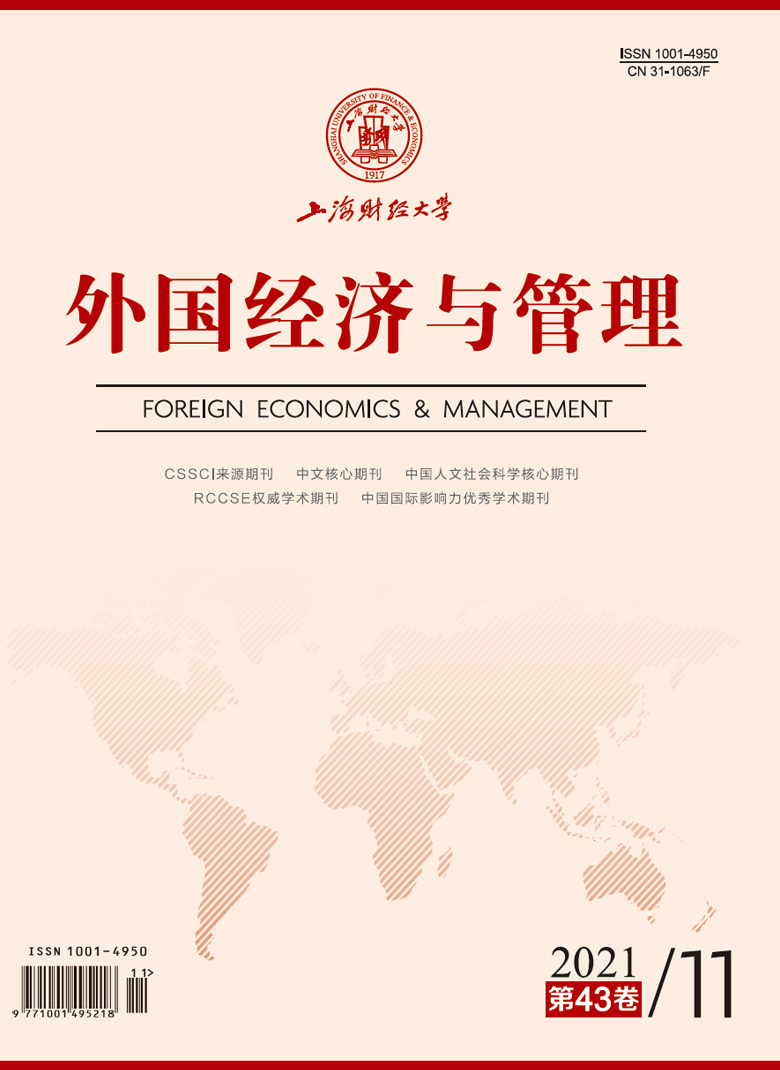随着数字化时代的到来,算法决策在企业管理中的应用越来越广泛,算法决策对员工造成的心理及行为层面的影响,成为一个具有重要理论意义与实践意义的问题。本文结合算法管理、公平等领域的研究,采用归因视角来分析决策者类型(算法决策、领导决策)和决策有利性的交互作用对员工公平感,以及对员工的组织偏差行为和社会偏差行为的影响。我们开展了一个质化的预研究和一个实验研究来检验受调节的中介模型。研究结果表明:在面临不利决策时,员工觉得算法决策比领导决策更公平,从而展现出更少的组织偏差行为和社会偏差行为;而这些差异在面临有利决策时不显著。本研究是对近来兴起的关于算法如何影响员工感知与行为的研究的重要发展,也为算法时代的管理决策提供了实践启示。
算法决策、员工公平感与偏差行为:决策有利性的调节作用
摘要
参考文献
1 赖祐萱. 外卖骑手, 困在系统里[EB/OL]. https://zhuanlan.zhihu.com/p/225120404, 2020-09-09.
2 Alder G S, Ambrose M L. An examination of the effect of computerized performance monitoring feedback on monitoring fairness, performance, and satisfaction[J]. Organizational Behavior and Human Decision Processes,2005, 97(2): 161-177. DOI:10.1016/j.obhdp.2005.03.003
3 Aquino K, Lewis M U, Bradfield M. Justice constructs, negative affectivity, and employee deviance: A proposed model and empirical test[J]. Journal of Organizational Behavior,1999, 20(7): 1073-1091. DOI:10.1002/(SICI)1099-1379(199912)20:7<1073::AID-JOB943>3.0.CO;2-7
4 Bradley G W. Self-serving biases in the attribution process: A reexamination of the fact or fiction question[J]. Journal of Personality and Social Psychology,1978, 36(1): 56-71. DOI:10.1037/0022-3514.36.1.56
5 Burton J W, Stein M K, Jensen T B. A systematic review of algorithm aversion in augmented decision making[J]. Journal of Behavioral Decision Making,2020, 33(2): 220-239. DOI:10.1002/bdm.2155
6 Claggett J L, Karahanna E. Unpacking the structure of coordination mechanisms and the role of relational coordination in an era of digitally mediated work processes[J]. Academy of Management Review,2018, 43(4): 704-722. DOI:10.5465/amr.2016.0325
7 Colquitt J A, Conlon D E, Wesson M J, et al. Justice at the millennium: A meta-analytic review of 25 years of organizational justice research[J]. Journal of Applied Psychology,2001, 86(3): 425-445. DOI:10.1037/0021-9010.86.3.425
8 Colquitt J A, Scott B A, Rodell J B, et al. Justice at the millennium, a decade later: A meta-analytic test of social exchange and affect-based perspectives[J]. Journal of Applied Psychology,2013, 98(2): 199-236. DOI:10.1037/a0031757
9 Dietvorst B J, Simmons J P, Massey C. Algorithm aversion: People erroneously avoid algorithms after seeing them err[J]. Journal of Experimental Psychology:General,2015, 144(1): 114-126. DOI:10.1037/xge0000033
10 Dietvorst B J, Simmons J P, Massey C. Overcoming algorithm aversion: People will use imperfect algorithms if they can(even slightly)modify them[J]. Management Science,2018, 64(3): 1155-1170. DOI:10.1287/mnsc.2016.2643
11 Gioia D A, Corley K G, Hamilton A L. Seeking qualitative rigor in inductive research: Notes on the Gioia methodology[J]. Organizational Research Methods,2013, 16(1): 15-31. DOI:10.1177/1094428112452151
12 Hay C, Meldrum R, Mann K. Traditional bullying, cyber bullying, and deviance: A general strain theory approach[J]. Journal of Contemporary Criminal Justice,2010, 26(2): 130-147. DOI:10.1177/1043986209359557
13 Hayes A F. Introduction to mediation, moderation, and conditional process analysis: A regression-based approach[M]. 2nd ed. New York: Guilford Press, 2017.
14 Hoobler J M, Brass D J. Abusive supervision and family undermining as displaced aggression[J]. Journal of Applied Psychology,2006, 91(5): 1125-1133. DOI:10.1037/0021-9010.91.5.1125
15 Jones D A, Martens M L. The mediating role of overall fairness and the moderating role of trust certainty in justice–criteria relationships: The formation and use of fairness heuristics in the workplace[J]. Journal of Organizational Behavior,2009, 30(8): 1025-1051.
16 Kelley H H, Michela J L. Attribution theory and research[J]. Annual Review of Psychology,1980, 31: 457-501. DOI:10.1146/annurev.ps.31.020180.002325
17 Kellogg K C, Valentine M A, Christin A. Algorithms at work: The new contested terrain of control[J]. Academy of Management Annals,2020, 14(1): 366-410. DOI:10.5465/annals.2018.0174
18 Kizilcec R F. How much information?: Effects of transparency on trust in an algorithmic interface[A]. Proceedings of the 2016 CHI conference on human factors in computing systems[C]. San Jose: ACM, 2016.
19 Konovsky M A, Folger R. The effects of procedures, social accounts, and benefits level on victims’ layoff reactions[J]. Journal of Applied Social Psychology,1991, 21(8): 630-650. DOI:10.1111/j.1559-1816.1991.tb00540.x
20 Langer M, König C J, Sanchez D R P, et al. Highly automated interviews: Applicant reactions and the organizational context[J]. Journal of Managerial Psychology,2020, 35(4): 301-314.
21 Lee M K. Understanding perception of algorithmic decisions: Fairness, trust, and emotion in response to algorithmic management[J]. Big Data & Society,2018, 5(1): 1-16.
22 Lee M K, Kusbit D, Metsky E, et al. Working with machines: The impact of algorithmic and data-driven management on human workers[A]. Proceedings of the 33rd annual ACM conference on human factors in computing systems[C]. Seoul: ACM, 2015.
23 Leventhal G S. What should be done with equity theory? New approaches to the study of fairness in social relationships[A]. Gergen K J, Greenberg M S, Willis R H. Social exchange: Advances in theory and research[M]. New York: Plenum, 1980.
24 Lind E A. Fairness heuristic theory: Justice judgments as pivotal cognitions in organizational relations[A]. Greenberg J, Cropanzano R. Advances in organization justice[M]. Stanford: Stanford University Press, 2001.
25 Logg J M, Minson J A, Moore D A. Algorithm appreciation: People prefer algorithmic to human judgment[J]. Organizational Behavior and Human Decision Processes,2019, 151: 90-103. DOI:10.1016/j.obhdp.2018.12.005
26 Marcus-Newhall A, Pedersen W C, Carlson M, et al. Displaced aggression is alive and well: A meta-analytic review[J]. Journal of Personality and Social Psychology,2000, 78(4): 670-689. DOI:10.1037/0022-3514.78.4.670
27 McNall L A, Roch S G. Effects of electronic monitoring types on perceptions of procedural justice, interpersonal justice, and privacy[J]. Journal of Applied Social Psychology,2007, 37(3): 658-682. DOI:10.1111/j.1559-1816.2007.00179.x
28 Newman D T, Fast N J, Harmon D J. When eliminating bias isn’t fair: Algorithmic reductionism and procedural justice in human resource decisions[J]. Organizational Behavior and Human Decision Processes,2020, 160: 149-167. DOI:10.1016/j.obhdp.2020.03.008
29 Ötting S K, Maier G W. The importance of procedural justice in human–machine interactions: Intelligent systems as new decision agents in organizations[J]. Computers in Human Behavior,2018, 89: 27-39. DOI:10.1016/j.chb.2018.07.022
30 Schlicker N, Langer M, Ötting S K, et al. What to expect from opening up “black boxes”? Comparing perceptions of justice between human and automated agents[J]. Computers in Human Behavior,2021, 122: 106837. DOI:10.1016/j.chb.2021.106837
31 Shin D, Park Y J. Role of fairness, accountability, and transparency in algorithmic affordance[J]. Computers in Human Behavior,2019, 98: 277-284. DOI:10.1016/j.chb.2019.04.019
32 Sundar S S, Nass C. Conceptualizing sources in online news[J]. Journal of Communication,2001, 51(1): 52-72. DOI:10.1111/j.1460-2466.2001.tb02872.x
33 Wolosin R J, Sherman S J, Till A. Effects of cooperation and competition on responsibility attribution after success and failure[J]. Journal of Experimental Social Psychology,1973, 9(3): 220-235. DOI:10.1016/0022-1031(73)90011-5
引用本文
魏昕, 黄鸣鹏, 李欣悦. 算法决策、员工公平感与偏差行为:决策有利性的调节作用[J]. 外国经济与管理, 2021, 43(11): 56-69.
导出参考文献,格式为:





 7974
7974  9071
9071

